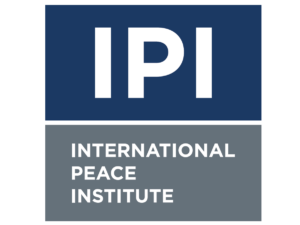 In Making Sanction Smarter: Safeguarding Humanitarian Action Alice Debarre of the International Peace Institute argues that although sanctions regimes are used with the assumption that they minimize harm, they actually can devastate civilian populations, particularly those that rely on humanitarian aid, including refugees and internally displaced persons. Sanctions regimes also affect humanitarian organizations’ ability to deliver aid on the basis of need alone and not be directed by the political objectives of sanctions programs. Through four case studies (Democratic People’s Republic of Korea (DPRK), Somalia, Iraq, and Syria), Debarre provides context on the history of sanctions, and how sanctions have impacted humanitarian action in each country. The policy paper then provides recommendations for addressing the challenges sanctions pose for effective humanitarian access.
In Making Sanction Smarter: Safeguarding Humanitarian Action Alice Debarre of the International Peace Institute argues that although sanctions regimes are used with the assumption that they minimize harm, they actually can devastate civilian populations, particularly those that rely on humanitarian aid, including refugees and internally displaced persons. Sanctions regimes also affect humanitarian organizations’ ability to deliver aid on the basis of need alone and not be directed by the political objectives of sanctions programs. Through four case studies (Democratic People’s Republic of Korea (DPRK), Somalia, Iraq, and Syria), Debarre provides context on the history of sanctions, and how sanctions have impacted humanitarian action in each country. The policy paper then provides recommendations for addressing the challenges sanctions pose for effective humanitarian access.
The Problem
The report explains that the impact of sanctions regimes often depends on which sanctions regime or regimes the aid is interacting with, as regimes from different actors (i.e. the UN, U.S. and the EU) have different requirements. However, Debarre breaks the effects down into categories including the following:
Debarre says the chilling effect, or environment produced by the combination of the above factors, often affects the behavior of humanitarian aid organizations as much as the sanctions regimes themselves. This challenges the “ability of humanitarian actors to operate in a principled manner . . . This has a direct effect on populations in need, in particular those living in areas controlled by sanctioned groups, as they will be cut off from services that, in many such contexts, are only provided by humanitarian actors.”
The Reasons these Problems Persist
The reasons these problems still exists— despite being first reported in 1998—will not surprise anyone with experience in the humanitarian sphere:
The Solution
Luckily, Debarre suggests strategies for alleviating and ultimately solving this problem, ranging from the short- to long-term. They include:
